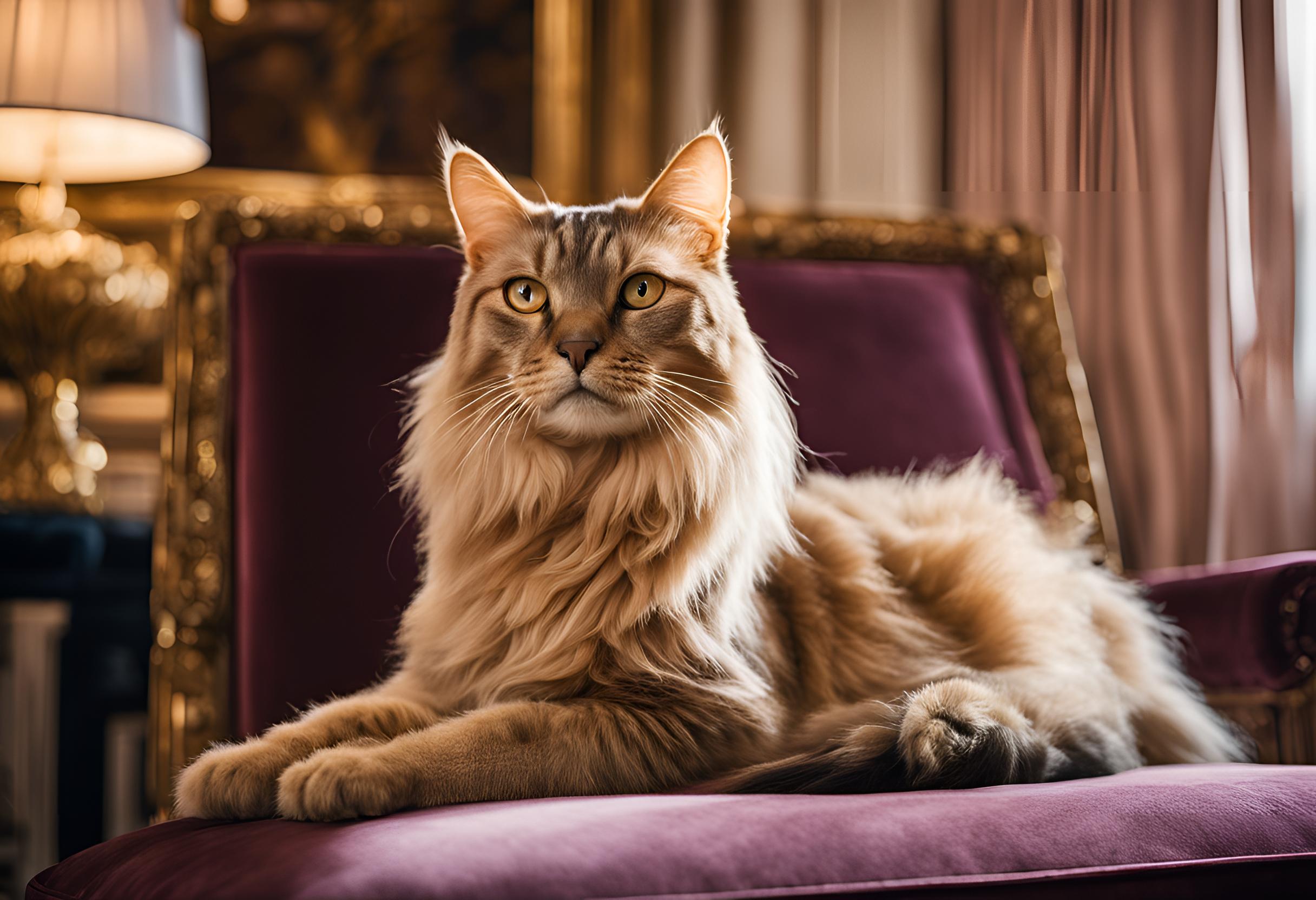
Cats Protection is urging animal lovers to be cautious of hidden health risks after a recent report revealed that sales of pedigree cats have overtaken moggie cats for the first time.
According to the charity’s Cats And Their Stats Report 2024, 45% of all cats acquired between March 2023 and March 2024 were pedigrees or purebred cats (715,000), compared to 43% moggies (685,000), with the remainder made up of cross-breeds.
This marks a significant shift in trends, as just three years ago, moggies were the top choice, with an estimated 715,000 purchased compared to 490,000 pedigrees (51% and 35% respectively).
Cats Protection suggests that the rise in popularity of pedigrees may be influenced by their eye-catching appearances, frequently showcased on social media by influencers and celebrities. Unfortunately, many remain unaware of the hidden health risks that can accompany some of these breeds, particularly those with extreme physical characteristics.
Sarah Elliott, Central Veterinary Officer for Cats Protection, said:
“As an organisation, Cats Protection is here for all cats, and many pedigrees are bred responsibly, but sadly there are still many hazards for buyers to navigate.
“They may be attracted to a cute or unusual look, but cats bred to have extreme body types—such as hairlessness, short legs, or extremely flat faces—can leave owners with expensive vet bills and cats with complex needs and a poor quality of life.
“Often, these issues are hidden at the start of a cat’s life, so it’s crucial that buyers do their homework before committing to a purchase. Cats Protection wants to support all cat owners in giving their pets the best possible life, including those who choose pedigrees. To do that, it’s vital new owners research what they’re taking on.
“For instance, Scottish Fold cats, such as those owned by Ed Sheeran and Taylor Swift, are bred for their folded ears, but they suffer from degenerative joint disease and often develop painful arthritis. In some cases, vets may even advise euthanasia due to the severity of this condition.”
A recent case at Cats Protection Worthing involved Bumble, an ultra-flat-faced Persian cat, whose owner was no longer able to care for her. Bumble suffers from a painful eye condition common in Persians called a corneal sequestrum, where tissue on the surface of the eye dies and forms a black circular area. Bumble is currently undergoing treatment, though it remains uncertain whether her most affected eye can be saved. She will need extensive vet care before she can be rehomed.
Top Tips from Cats Protection:
- Before buying a pedigree, research any potential health and welfare issues related to the breed. Choose a responsible breeder and ask about screening for genetic illnesses.
- If purchasing a kitten, refer to the Kitten Checklist, created by leading cat experts, to help you avoid scams and choose a healthy, happy kitten.
- Don’t overlook moggies! These cats have just as much love and companionship to offer as pedigrees.
For the full Cats And Their Stats Report 2024, click here, and for more information on caring for cats, visit www.cats.org.uk.
Pedigree Cats: What You Need to Know

Photo of a ragdoll cat by Mikhail Vasilyev on Unsplash
For those drawn to the beauty and elegance of pedigree cats, it’s essential to understand what this term means and what health issues to look out for. Pedigree cats are those that belong to recognised breeds, often with lineage documented over generations, and are typically bred for specific characteristics like appearance and temperament.
Some popular pedigree breeds include:
- Persian Cats: Known for their luxurious long coats and flat faces, Persians are prone to breathing issues, eye conditions (like corneal sequestrum), and dental problems due to their facial structure.
- Maine Coon Cats: These large, friendly cats are famous for their thick fur and playful nature. However, they are prone to hip dysplasia and hypertrophic cardiomyopathy (HCM), a form of heart disease.
- Bengal Cats: With their striking, wild appearance, Bengals are active and intelligent. Common health concerns for this breed include progressive retinal atrophy (PRA) and heart disease.
- Sphynx Cats: Famous for their hairless bodies, Sphynx cats require special skincare due to their lack of fur. They can also suffer from heart issues like HCM and respiratory problems.
- Ragdoll Cats: Known for their gentle nature and stunning blue eyes, Ragdolls are one of the most popular pedigree breeds. However, they are prone to heart disease such as hypertrophic cardiomyopathy and may also suffer from urinary tract issues.
While pedigree cats offer unique qualities, their breeding for extreme characteristics can often result in inherited health issues, requiring diligent care and frequent vet visits. Always consult with breeders, ask for health clearances, and consider potential long-term costs before making a decision.
And remember, a moggie can be just as affectionate, playful, and healthy—without the risk of breed-specific problems!

